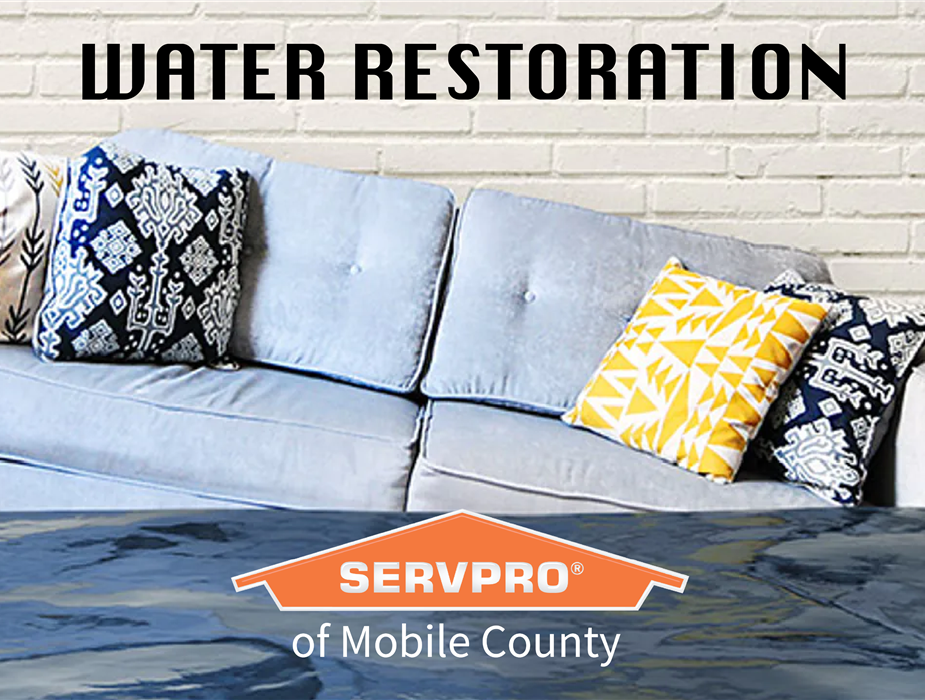What To Do When You Have Interior Flooding
6/21/2021 (Permalink)
If you find yourself in an indoor flooding situation, we are for you 24/7. Before we arrive to help you, here are some ways you can minimize potential water damage:
DO:
- Shut off the source of water if possible or contact a qualified party to stop the water source
- Turn off circuit breakers for wet areas of the building, when access to the power distribution panel is safe from electrical shock
- Remove as much excess water as possible by mopping and blotting
- Wipe excess water from wood furniture after removing lamps and tabletop items
- Remove and prop up wet upholstery cushions for even drying
- Place aluminum foil or wood blocks between furniture legs and wet carpeting
- Remove to a safe, dry place any paintings, art objects, computers, documents and other materials that are valuable or sensitive to moisture.
- Use wooden clothespins to keep furniture skirting off damp floors
- Hang draperies with coated hangers to avoid contact with wet carpeting or floors
- Hang furs and leather goods to dry separately at room temperature
DON’T:
- Enter rooms with standing water where electrical shock hazards may exist
- Enter affected areas if electrical outlets, switches, circuit breakers or electrical equipment are exposed to water. Always avoid electrical shock hazards
- Leave books, newspapers, magazines or other colored items on wet carpets or floors to cause staining
- Leave Oriental rugs or other colored rugs on wet wall-to-wall carpets to cause staining.
- Use your household vacuum cleaner to remove water, possibly causing electrical shock or damage to the vacuum cleaner
- Use TVs or other appliances while standing on wet carpets or floors, especially not on wet concrete floors
- Turn on ceiling fixtures if ceiling is wet or enter rooms where ceilings are sagging from retained water






 24/7 Emergency Service
24/7 Emergency Service
